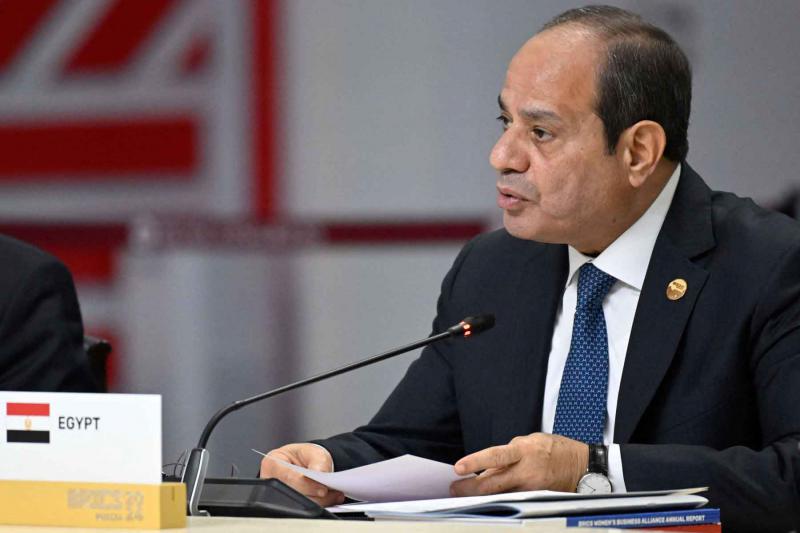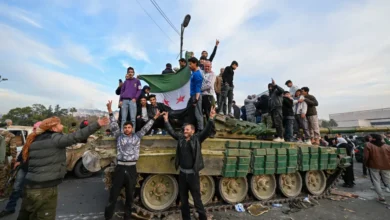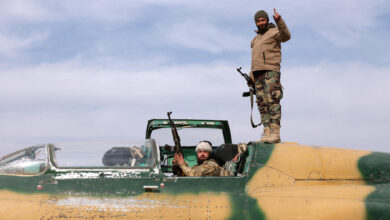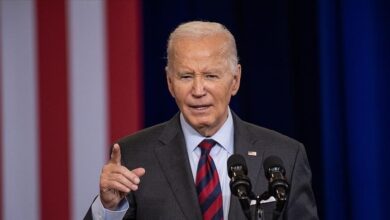
Egyptian President Abdel Fattah al-Sisi has announced a proposal for a two-day truce in Gaza, paired with a limited hostage exchange, as part of his efforts to secure an end to the prolonged conflict between Israel and Hamas. This initiative, presented at a news conference in Cairo, aims to open the door to a “complete ceasefire” and provide a temporary respite in a conflict that has caused significant casualties and destruction. Under this plan, Egypt suggests exchanging four Israeli hostages held by Hamas in Gaza for Palestinian prisoners in Israeli custody. If successful, this exchange would set the stage for more extensive negotiations within a 10-day timeframe.
The two-day truce proposal highlights Egypt’s longstanding role as a mediator in Middle Eastern conflicts, leveraging its geographical proximity to Gaza and established diplomatic channels with both sides. However, Sisi did not confirm if the proposal had been officially presented to either Israel or Hamas. For months, Egypt, alongside Qatar and the United States, has been mediating indirect negotiations between the parties, yet progress has been elusive due to deep-rooted mistrust and recent escalations in violence.
Sisi’s announcement came amid intensifying hostilities, with Israel conducting airstrikes in Gaza and Lebanon and retaliatory actions against Iran following ballistic missile attacks. Israeli Prime Minister Benjamin Netanyahu described the recent strikes against Iran as “precise and powerful,” claiming they achieved their objectives. Israel’s strikes were in retaliation for an October 1st missile attack by Iran that saw approximately 200 missiles fired at Israeli territories, escalating the regional conflict further.
The broader implications of Egypt’s proposed truce are significant, with regional actors like Hezbollah in Lebanon and Iranian-backed militias across Iraq, Syria, and Yemen drawn into the conflict. In Lebanon, at least 1,615 people have reportedly died since September 23 due to ongoing clashes and Israeli airstrikes targeting Hezbollah. The United Nations has scheduled an emergency Security Council meeting, requested by Iran, to address the latest Israeli strikes that left four Iranian soldiers dead.
The ongoing violence in Gaza continues to devastate civilian areas, with heavy bombing reported in the northern regions, particularly around Jabalia and its neighboring refugee camp. Gaza’s civil defense agency reported that an Israeli strike on a school sheltering displaced Palestinians resulted in at least nine civilian casualties. The Israeli military is investigating the incident, which has prompted further international outcry over civilian protection in conflict zones.
United Nations Secretary-General Antonio Guterres expressed deep concern over the plight of civilians in Gaza, emphasizing the “unbearable” conditions for Palestinians trapped in conflict zones. Speaking in Cairo, Sisi underscored the urgent need for humanitarian assistance, warning of an impending famine if aid does not enter Gaza soon. The humanitarian crisis has been compounded by Gaza’s isolation and relentless military operations, leaving residents without essential supplies.
The recent conflict escalation follows a brutal October 7 attack by Hamas on Israel, leading to the deaths of over 1,200 Israelis, predominantly civilians, and a sustained Israeli offensive in Gaza that has resulted in over 42,000 Palestinian deaths, many of whom are civilians. Sisi’s truce proposal, if accepted, could temporarily halt the violence and allow for much-needed humanitarian aid to reach Gaza’s beleaguered residents.
Despite these diplomatic efforts, obstacles remain as the Israeli government faces public pressure to secure the release of remaining hostages. Israeli spy chief David Barnea’s recent visit to Qatar underscores the ongoing negotiations toward a potential hostage deal. Israel’s Defense Minister Yoav Gallant has acknowledged that “painful concessions” may be necessary, noting that military action alone may not suffice to achieve the country’s objectives.
As the situation evolves, Sisi’s proposal for a temporary truce represents a critical opportunity for de-escalation, yet the path to lasting peace remains fraught with challenges and complex negotiations.




